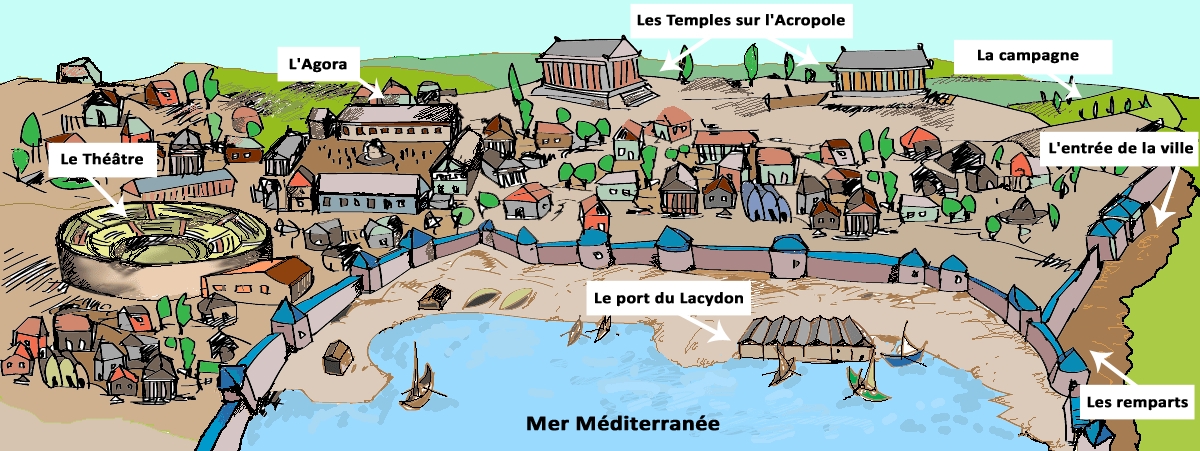Tyche's Favourites/Massalia: Difference between revisions
Created page with " <center>image:380465.jpg</center> <center>''A sketch of what Massalia might have looked like, based on the archaeological findings''</center> '''Greeks in Gallia''' Tr..." |
No edit summary |
||
| Line 1: | Line 1: | ||
| Line 18: | Line 17: | ||
Founding | Founding | ||
Relationship with other Phokaian colonies (Emporion, Elea, Alalia) | |||
Second wave of migration from Phokaia | |||
Conflicts with Carthaginians/Etruscans (Corsica) | |||
Founding of it's own colonies (Rhode/Rodi, Olbia) | |||
Revision as of 10:07, 15 June 2013

Greeks in Gallia
Traders
Rhodians and Rhodanosia/Theline
Massalia's Early History
Founding
Relationship with other Phokaian colonies (Emporion, Elea, Alalia)
Second wave of migration from Phokaia
Conflicts with Carthaginians/Etruscans (Corsica)
Founding of it's own colonies (Rhode/Rodi, Olbia)
Massalia in 300BC
Government
Initially, the Massilian constitution was a narrow aristocratic regime. However, an attempt was soon made to reduce the power of the great families by insisting that, if a man belong to the Council his son could not, and if an elder brother belonged to the Council his younger brother could not be a member. Such specifics probably lapsed, but the tendency led to the evolution of the aristocratic system to a more plutocratic oligarchic system. This government is headed by the Council of Six Hundred. To be a member councilors has to be able to prove they were of citizen decent for at least three generations or, alternatively, has to possess children. The list is revised from time to time. The Council elects an executive council of fifteen— oi timoukoi—from the main body. The timouchoi are led by three presidents. An unusual feature of the Massilian government is that a criminal condemned to death is maintained at public expense for one year, after which the criminal is executed as a pharmakos or purification of the city.